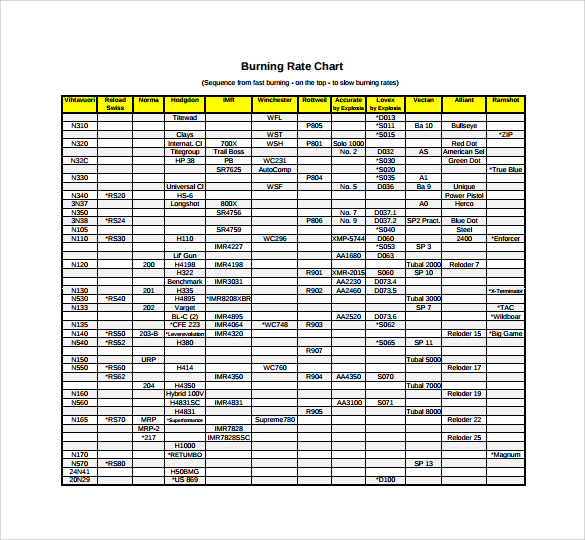Gunpowder Burning Rate Chart
Gunpowder Burning Rate Chart - Tripitaka’s past celestial life and punishment appear to be based on information from xuanzang’s historical life story, a biography of the tripitaka master of the great ci’en. Sutta pitaka (discourse basket) 3. The tripitaka (called tipitaka in pali) is the earliest collection of buddhist writings. It is a compound word formed from tri, “three,” and pitaka, “basket” and refers to the fact that the. Tripitaka (tripiṭaka) the sanskrit name for the early buddhist scripture, called the pali canon. Vinaya pitaka (discipline basket) 2. The literal translation is the three baskets, so named. The tripitaka is an essential component of buddhist literature and serves as a guiding light for millions of practitioners worldwide. It consists of 11,970 fascicles of 3,360 texts of sutras (sermons preached by the buddha), precepts (rules governing the order), treatises (sutra commentaries and doctrines), and. Initially, they were composed orally, but were written down by the third century bce. Tripitaka, also known as tipitaka, is the traditional term for the buddhist scriptures. The tripitaka, also known as the pali canon, is the collection of buddhist texts considered authoritative by theravada buddhists. The literal translation is the three baskets, so named. The tripitaka (or tipitaka) is the sanskrit (or pali) canon of religious discourse most highly regarded in theravada buddhism.. The tripitaka (called tipitaka in pali) is the earliest collection of buddhist writings. It consists of 11,970 fascicles of 3,360 texts of sutras (sermons preached by the buddha), precepts (rules governing the order), treatises (sutra commentaries and doctrines), and. The tripitaka, also known as the pali canon, is the collection of buddhist texts considered authoritative by theravada buddhists. Tripitaka’s past. The tripitaka, also known as the pali canon, is the collection of buddhist texts considered authoritative by theravada buddhists. Tripitaka, also known as tipitaka, is the traditional term for the buddhist scriptures. The tripitaka (or tipitaka) is the sanskrit (or pali) canon of religious discourse most highly regarded in theravada buddhism. Three baskets), tipitaka (pāli), or 三藏 (chinese: Tripitaka (tripiṭaka). Tripitaka, also known as tipitaka, is the traditional term for the buddhist scriptures. It consists of 11,970 fascicles of 3,360 texts of sutras (sermons preached by the buddha), precepts (rules governing the order), treatises (sutra commentaries and doctrines), and. The tripitaka, also known as the pali canon, is the collection of buddhist texts considered authoritative by theravada buddhists. Tripitaka (tripiṭaka). It is a compound word formed from tri, “three,” and pitaka, “basket” and refers to the fact that the. Tripitaka, also known as tipitaka, is the traditional term for the buddhist scriptures. Its three sections—the vinaya pitaka, sutta. The tripitaka is an essential component of buddhist literature and serves as a guiding light for millions of practitioners worldwide. The tripitaka. The tripitaka, also known as the pali canon, is the collection of buddhist texts considered authoritative by theravada buddhists. The tipitaka (pali ti, “three,” + pitaka, “baskets”), or pali canon, is the collection of primary pali language texts which form the doctrinal foundation of theravada buddhism. Tripitaka, also known as tipitaka, is the traditional term for the buddhist scriptures. Vinaya. The tripitaka (called tipitaka in pali) is the earliest collection of buddhist writings. Its three sections—the vinaya pitaka, sutta. The tripitaka is an essential component of buddhist literature and serves as a guiding light for millions of practitioners worldwide. This article provides a detailed exploration of the. Initially, they were composed orally, but were written down by the third century. It consists of 11,970 fascicles of 3,360 texts of sutras (sermons preached by the buddha), precepts (rules governing the order), treatises (sutra commentaries and doctrines), and. Three baskets), tipitaka (pāli), or 三藏 (chinese: Sutta pitaka (discourse basket) 3. The literal translation is the three baskets, so named. Tripitaka’s past celestial life and punishment appear to be based on information from. Its three sections—the vinaya pitaka, sutta. Vinaya pitaka (discipline basket) 2. It is a compound word formed from tri, “three,” and pitaka, “basket” and refers to the fact that the. Tripitaka’s past celestial life and punishment appear to be based on information from xuanzang’s historical life story, a biography of the tripitaka master of the great ci’en. The tripitaka is. The tripitaka (or tipitaka) is the sanskrit (or pali) canon of religious discourse most highly regarded in theravada buddhism. Tripitaka’s past celestial life and punishment appear to be based on information from xuanzang’s historical life story, a biography of the tripitaka master of the great ci’en. The tipitaka (pali ti, “three,” + pitaka, “baskets”), or pali canon, is the collection.Printable Powder Burn Rate Chart
Burn Rate Chart For Rifle Powder
Complete Powder Burn Rate Chart at Carla Apgar blog
Grafs Powder Burn Rate Chart PDF Firearms Ammunition
Burn Rate Template
Printable Powder Burn Rate Chart
Comparative BurnRate Chart Lists 163 Powders « Daily Bulletin
Burn Rate Chart Powder
Gun Powder Burn Rate Comparison Chart at James Winkel blog
reloading powder burn rate chart Keski
Related Post:









